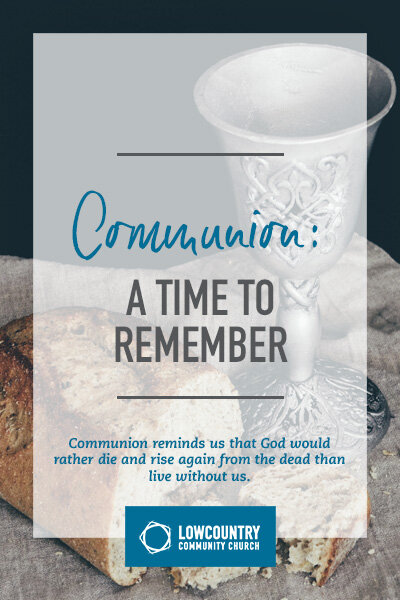Communion: A Time to Remember
By Jeff Cranston
Some call it a ritual, others call it an observance; some call it a sacrament, still others, an ordinance. Whatever you call it, Communion is a time of remembrance and hope. It is a time that reminds us that God would rather die and rise again from the dead than live without us. It’s a time to remember what is really most important. And it’s meant to be an intensely personal time between us and our Lord.
At Communion, all the images—the foot washing, the anguished prayer in the Garden of Gethsemane, the betrayal, the crucifixion and the victory over death—come flooding back to us. It’s a time to remember that Jesus Christ went through all He did especially for you and me.
The Last Supper
In 1 Corinthians 11:23-26, apostle Paul describes the night of the Last Supper, when Jesus and the disciples broke bread together in the Upper Room:
I also delivered to you, that the Lord Jesus in the night in which He was betrayed took bread; and when He had given thanks, He broke it and said, “This is My body, which is for you; do this in remembrance of Me.” In the same way He took the cup also after supper, saying, “This cup is the new covenant in My blood; do this, as often as you drink it, in remembrance of Me.” For as often as you eat this bread and drink the cup, you proclaim the Lord’s death until He comes.
Jesus intended to infuse this Supper with meaning. He was the first one to break the bread and bless it. He then passed the cup and said, “This cup is the new covenant in My blood … ” And He did all of this on a very important night—the night He was betrayed.
Remembering Christ’s Death
Jesus told us to “proclaim His death … ” What’s this mean? We are to remember, exhibit, symbolize, represent, and picture the death of Christ. His death on the cross of Calvary is the center of the gospel. He gave His life as a ransom for us—sinners one and all. This is the truth that must always be proclaimed by the people of God to a lost, needy, and dying world. We proclaim His death through the two elements: the bread and the fruit of the vine. The bread represents His body, the juice represents His blood—His broken body and His shed blood.
Something else adds its importance to Communion: Jesus is coming again (1 Thessalonians 4:13-18). We are to observe communion “until He comes.” This was not something just for the first-century Christians to do. We are to keep on gathering at His table, giving thanks, breaking bread, and proclaiming His death until the trumpet of the archangel startles us. We celebrate communion every time we take it “until He comes” because forgiveness through the death of Christ is still available to all who trust in Him. Because of the shed blood of Jesus, you are clean.
Sometimes I find it hard to accept this and believe it. I often do not feel that I deserve this from God. Sometimes I feel so dirty that even after confession, I do not feel clean. But the truth is that I am forgiven. And so are you.
Maybe Satan has hassled you too long and kept you in the pit of the despair over past sin—perhaps because of the habits of recurring sin or the guilt-ridden anguish of hidden sins. But hear it now: By His grace and through the blood of Christ, He has taken away your sin. You are forgiven, and you are clean!
Jeff Cranston is lead pastor of LowCountry Community Church in Bluffton, S.C.
Did you miss a Sunday? Catch up on past services from LowCountry Community Church.

